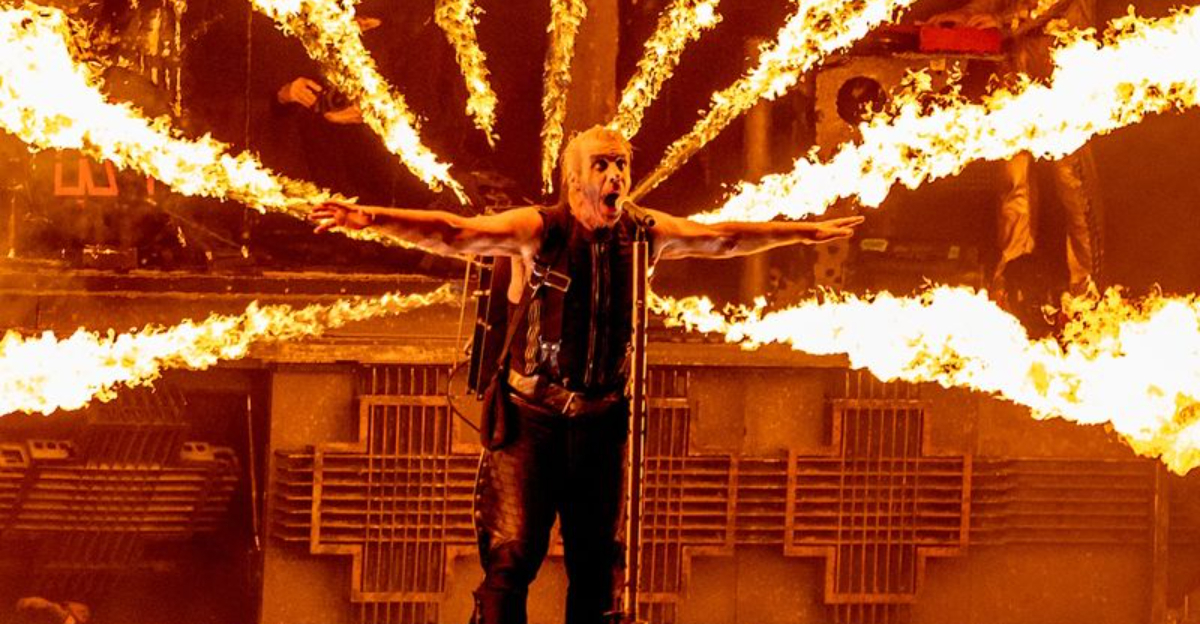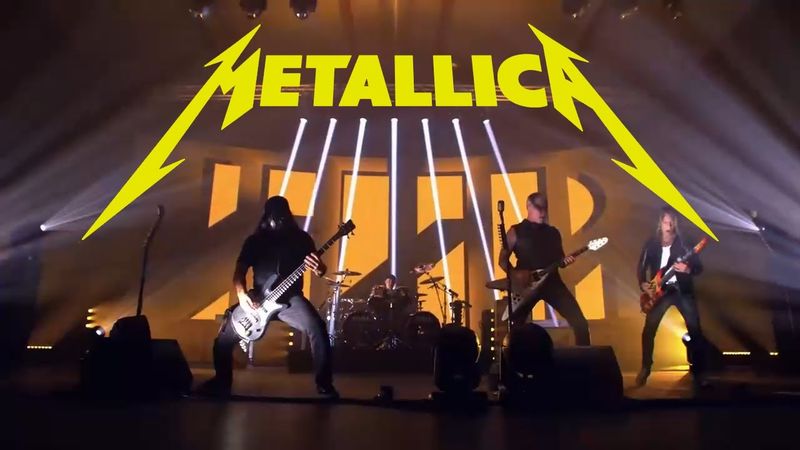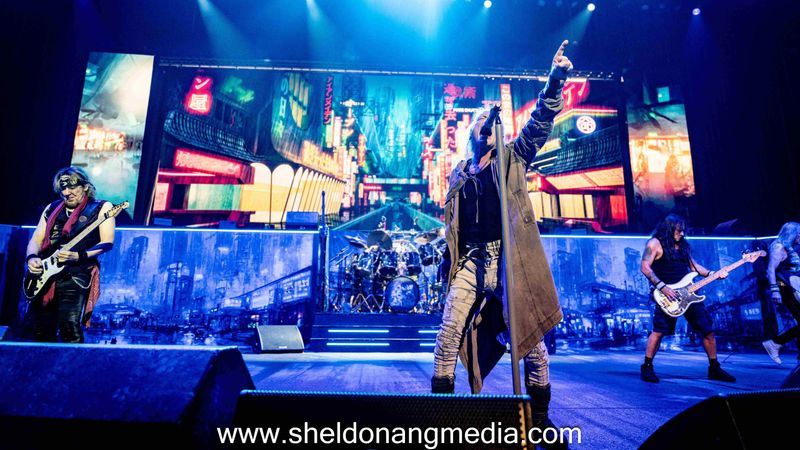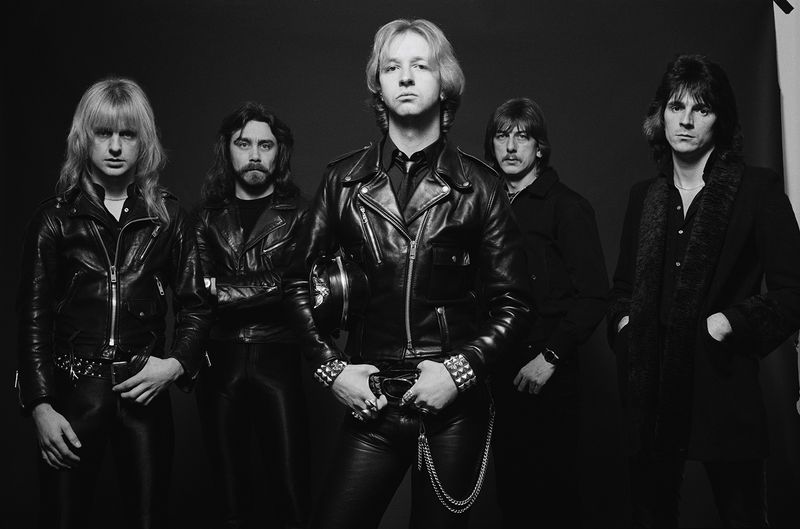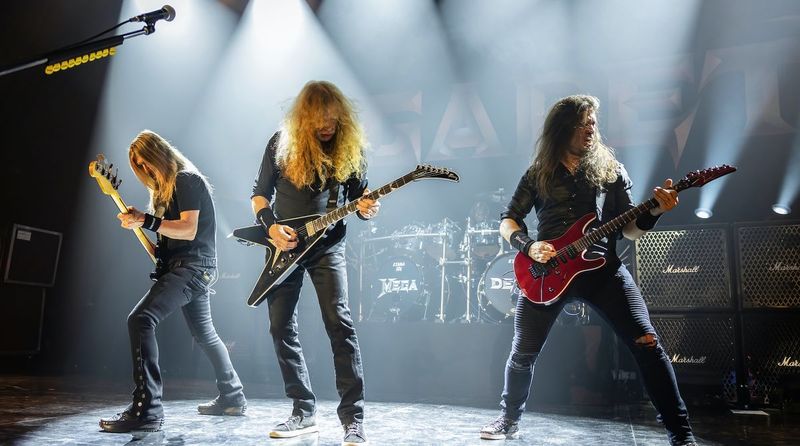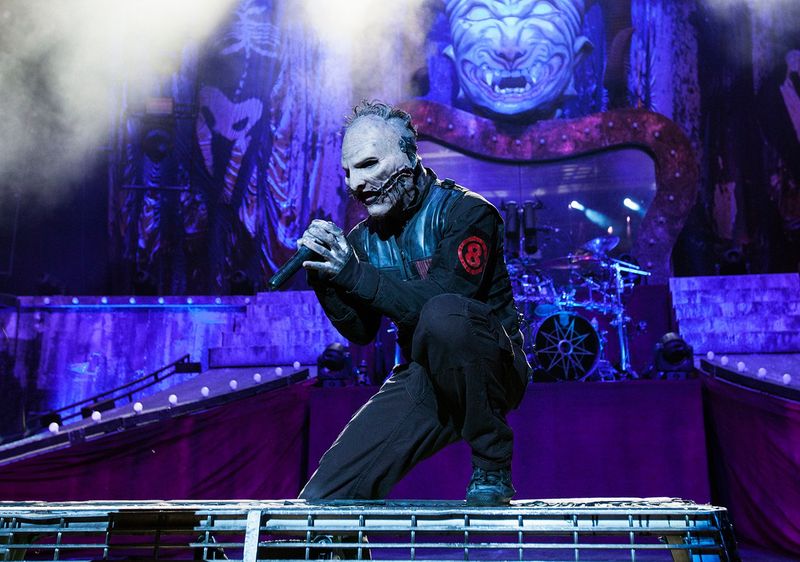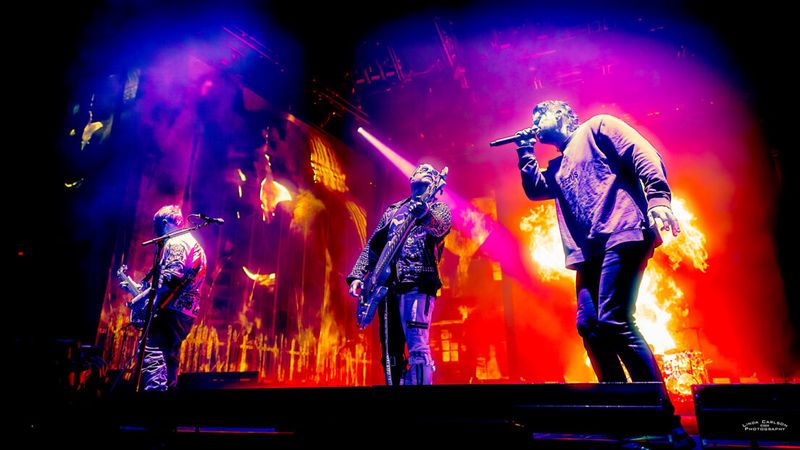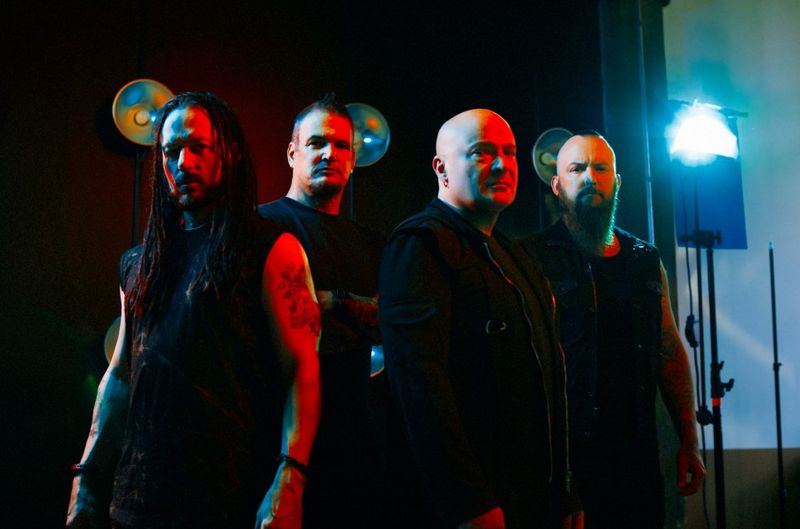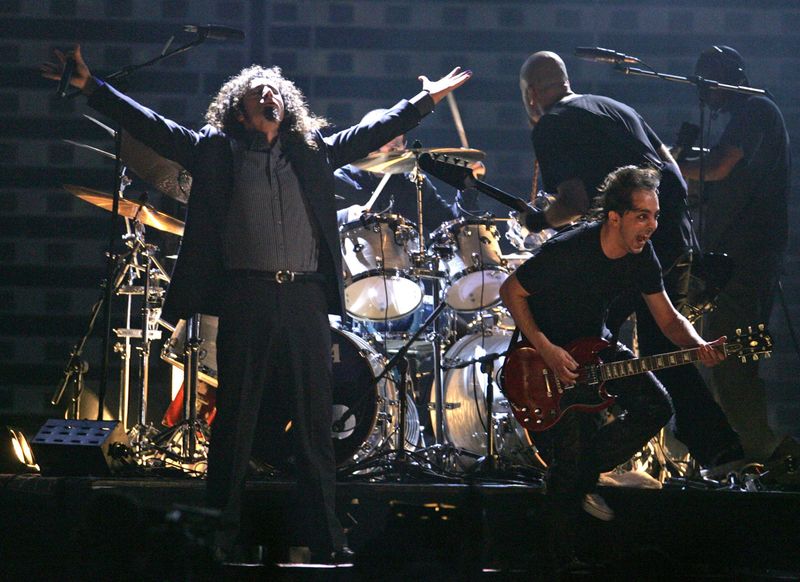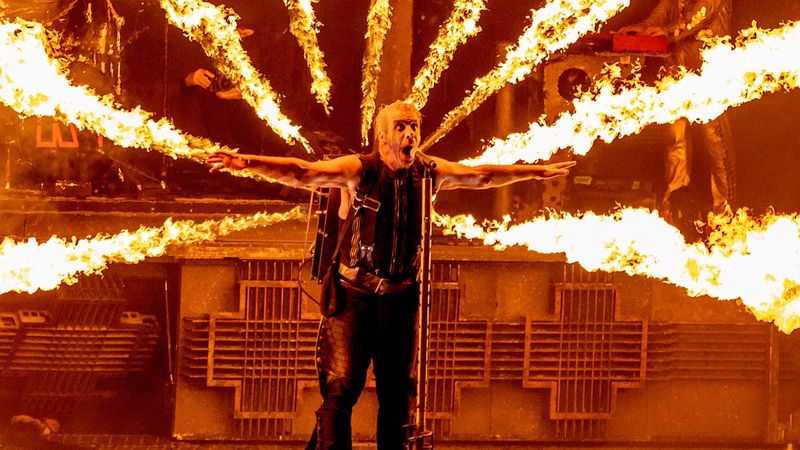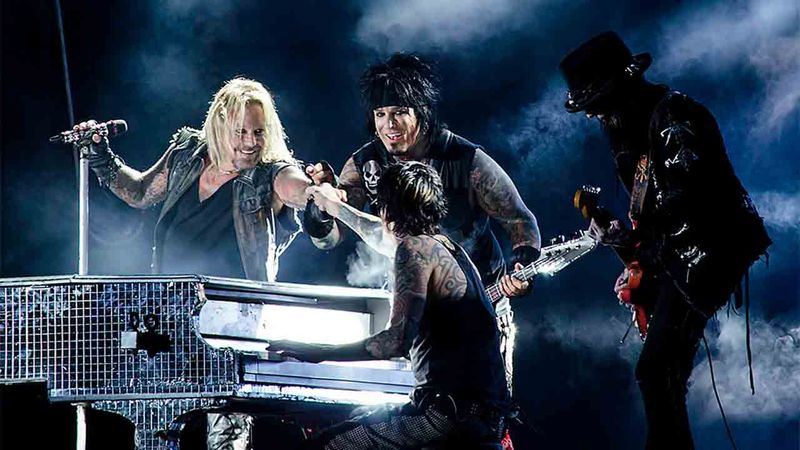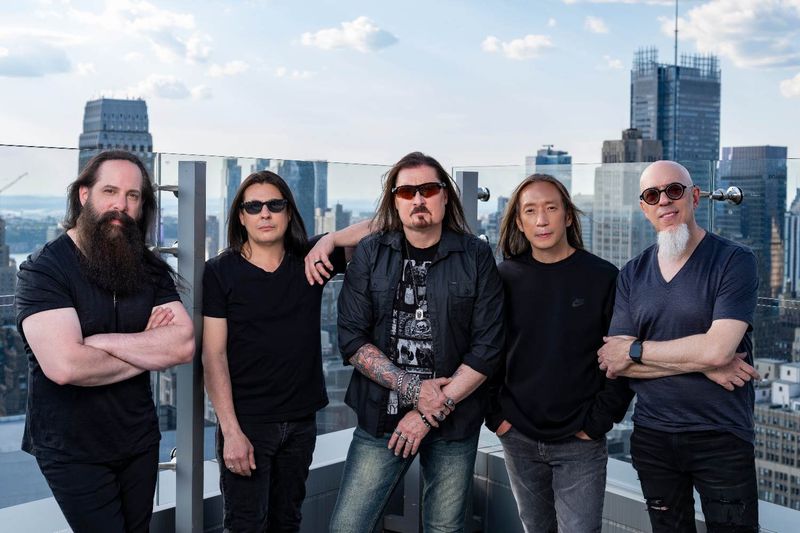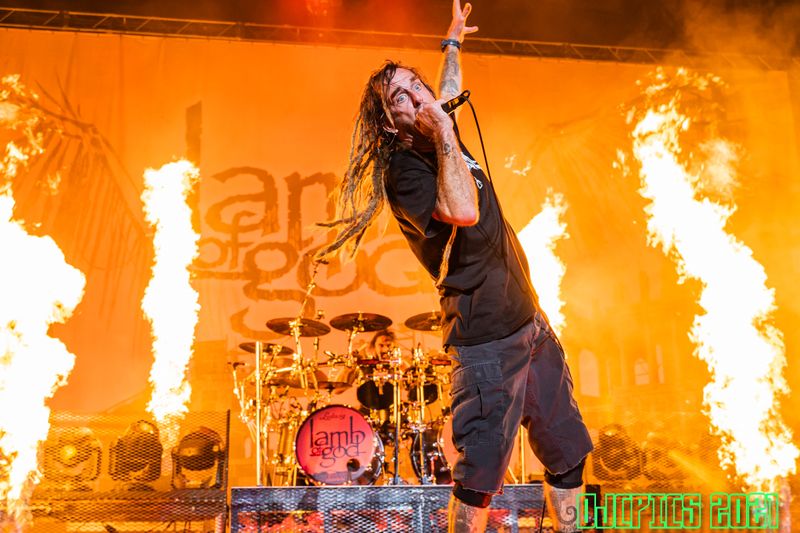Metal music has been both a groundbreaking and controversial genre, offering heavy riffs and intense performances. However, not all bands have lived up to the hype surrounding their names.
In this list, we delve into 15 metal bands that, despite their fame and influence, have been criticized for being overrated. Each band has its unique style and story, but some believe their reputations are built more on image than exceptional musical innovation.
Let’s explore these bands and the reasons why they might not stand up to the legendary status often attributed to them.
1. Metallica
Known for their thrash metal origins, Metallica has faced criticism for shifting toward a more polished, mainstream sound. This change in direction, particularly with albums like “Load” and “Reload,” alienated some of their original fan base.
While their earlier work is revered, their later music is seen by some as pandering to the masses rather than pushing the genre’s boundaries.
Despite this, Metallica remains an iconic name in metal, and their live performances continue to draw massive crowds, blending nostalgia with their evolved sound.
2. Iron Maiden
Iron Maiden, with their galloping rhythms and operatic vocals, has long been a staple in metal. However, critics argue that their themes, often centered around history and fantasy, have grown predictable over the decades.
Their theatrical live shows, while visually impressive, sometimes overshadow the music itself. Despite this, Iron Maiden’s ability to maintain a loyal fanbase showcases their enduring appeal, even if their innovation is considered by some to be limited compared to their influence.
3. Judas Priest
Judas Priest’s impact on metal is undeniable, with their leather-and-studs image and twin guitar harmonies. Yet, some critics point to their later work as being repetitive, lacking the groundbreaking energy of earlier albums like “British Steel.”
The band’s consistency, while commendable, is seen by some as a reluctance to evolve musically. Still, Judas Priest continues to be celebrated for their contributions to shaping the heavy metal identity, remaining a beloved act in the genre’s history.
4. Megadeth
Megadeth, often seen in the shadow of Metallica, boasts virtuosic musicianship and complex compositions. However, some argue that their technical prowess overshadows genuine innovation.
Albums like “Rust in Peace” showcase their skill, yet detractors feel that their focus on speed and technicality sometimes lacks emotional depth.
Despite this, Megadeth’s role in defining thrash metal remains significant, and their ability to continually release music keeps them relevant in the metal community.
5. Pantera
Pantera’s aggressive sound helped define a generation of metal, with albums like “Cowboys from Hell” leading the way. However, some critics argue that their later work leaned too much towards commercial appeal, diluting their initial rawness.
The band’s shift in style is seen as compromising their integrity for broader success. Nevertheless, Pantera’s influence on modern metal remains undisputed, with their legacy continuing to inspire new bands seeking that same gritty intensity.
6. Slipknot
Slipknot’s extreme imagery and theatrics have made them a unique presence in the metal scene. Yet, some feel that the band’s reliance on shock value overshadows their musical substance.
While their masks and stage antics capture attention, critics argue that their music sometimes lacks the depth expected from a band of their stature.
Regardless, Slipknot’s passionate fan base and ability to create a visceral live experience ensure their continued success and cultural impact within the genre.
7. Korn
As pioneers of the nu-metal genre, Korn’s impact on music is significant, but their adherence to a formulaic style has drawn criticism.
Their distinctive sound, characterized by heavy, downtuned guitars and emotional lyrics, has been both praised and seen as limiting.
Critics argue that Korn’s reliance on familiar themes and sonic patterns restricts their artistic growth. Still, their ability to connect with fans on a personal level keeps them relevant, even as musical trends evolve.
8. Avenged Sevenfold
Avenged Sevenfold’s eclectic mix of metalcore, hard rock, and progressive elements has garnered a wide appeal. Critics, however, argue that their popularity is driven more by overproduction and nostalgia than true innovation.
Their polished sound and visually striking performances attract fans, yet some feel this comes at the expense of raw artistic expression.
Despite this, Avenged Sevenfold’s ability to draw diverse audiences speaks to their impact and ongoing relevance in the rock and metal scenes.
9. Disturbed
Disturbed’s anthemic metal is known for being accessible to a broad audience, but it’s often labeled as too commercial. This accessibility, characterized by catchy hooks and polished production, sometimes lacks the raw edge that defines more traditional metal.
While some appreciate their straightforward sound, others see it as a compromise that limits their potential for artistic exploration. Nonetheless, Disturbed’s ability to engage listeners with their energetic performances has cemented their place in the metal genre.
10. Linkin Park
Linkin Park achieved massive success with their nu-metal roots, but critics argue their shift towards a pop-oriented sound diluted the genre’s intensity.
Albums like “Minutes to Midnight” marked a departure from their heavier beginnings, leading to mixed reactions from fans. While their evolution broadened their appeal, it also sparked debates about authenticity and artistic direction.
However, Linkin Park’s ability to innovate and adapt has kept their music relevant and influential, attracting a diverse fan base over the years.
11. System of a Down
System of a Down stands out for their unique blend of styles and politically charged lyrics. Yet, some argue that the novelty of their sound can wear off over time.
Their energetic, eclectic compositions are both a strength and a point of contention, as listeners debate the staying power of their music.
Despite this, the band’s commitment to addressing social issues and their ability to provoke thought through music ensures their continued relevance and a dedicated fan base.
12. Rammstein
Rammstein’s industrial approach and theatrical performances have garnered them a loyal following, but critics argue their sonic experimentation is limited. Their provocative imagery and stage pyrotechnics often overshadow the music itself.
While some fans appreciate their boldness, others feel their reliance on theatrics detracts from genuine musical innovation.
Nevertheless, Rammstein’s ability to entertain and provoke makes them a significant force in the metal genre, continually drawing audiences with their distinctive style.
13. Mötley Crüe
Mötley Crüe’s glam metal excess is iconic, but often seen as more style than substance. Their hedonistic image and catchy anthems defined an era, yet critics argue their music lacks the depth and complexity of other metal acts.
While their lifestyle and persona captured the spirit of the 80s, some feel it overshadowed their musical contributions. Despite this, Mötley Crüe’s ability to capture the imagination of fans and epitomize the glam metal scene ensures their place in rock history.
14. Dream Theater
Dream Theater is admired for their technical skill and complex compositions, but some critics find their progressive style excessively indulgent.
Their intricate musical arrangements are a hallmark, yet sometimes perceived as overshadowing emotional connection. While their virtuosity attracts a dedicated following, others feel their approach can become overwhelming.
Nonetheless, Dream Theater’s influence on progressive metal is undeniable, and their ability to challenge musical norms continues to inspire musicians and fans alike.
15. Lamb of God
Lamb of God is a modern staple in metal, known for their powerful stage presence and aggressive sound. Critics, however, argue that their formulaic approach doesn’t break new ground.
While their consistent style has attracted a loyal fan base, some feel it lacks the innovation needed to evolve the genre.
Despite this, Lamb of God’s relentless energy and commitment to their craft ensure they remain a key player in the metal scene, with performances that continue to thrill audiences worldwide.
